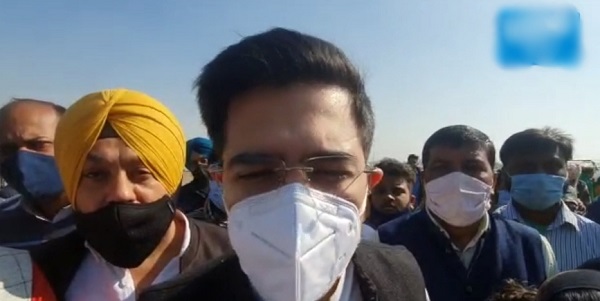New Delhi, (Samajweekly) The Delhi Jal Board on Monday expressed anguish over Haryana government’s abject response to the depleting levels of water in Yamuna River and hoped for a speedy solution.
DJB Vice Chairman Raghav Chadha said that the continuous fall in the level of Yamuna is a matter of “grave concern”.
“We have been requesting the Haryana government for their cooperation, and hope to come to an amicable solution,” he said.
For the last week, the level of Yamuna river has been falling continuously, and despite notifying the officers of the Haryana Irrigation Department on a daily basis, and their assurances that the matter will be taken care of, no concrete action has been taken, and there has been no improvement towards restoring normalcy, he said.
As per a Supreme Court order of February 1996, the pond level in Wazirabad has to be kept full. Since the level of the Wazirabad pond is falling drastically, it is likely to affect the water production at the Wazirabad and Chandrawal Water Treatment Plants. These plants supply drinking water to central, north, west and south Delhi.
According to the DJB, the normal level of Yamuna river near Wazirabad pond should be 674.50 feet but it has dropped to 672.20, a drop that is alarming.
“This drop can have a major impact on DJB’s treatment plants, and has been brought to the notice of UYRB officials as well,” Chadha said, adding: “As per our observation, Delhi faces a raw water problem every two weeks. This is caused either due to less flow in the Yamuna, less flow in the Delhi Sub Branch (DSB)/Carrier Lined Channels (CLC), or due to the discharge of polluted water in the Yamuna, which affects water production.”
Chadha also said that moreover, the ammonia level is also increasing, which is another cause of worry for the people of Delhi.
He blamed the Haryana for leaving huge amounts of untreated effluents into the Yamuna river, causing the ammonia levels to increase.
The levels of ammonia in Yamuna often increase beyond the permissible limit of 0.8 parts per million (ppm), which has an adverse impact on the production of water, compelling the DJB to shut down its plants.
Chadha said: “In fact, this level has gone up to 12 ppm, which is extremely dangerous and will likely impact our plants in Delhi. I urge the Haryana government to take immediate steps to not only curtail the level of ammonia in the Yamuna, but also release sufficient water to ensure the Wazirabad pond is full. I hope they will abide by the Supreme Court’s orders.”
The DJB had also sent a letter to the Haryana Irrigation Department last week, urging them to take urgent steps to look into the water problems faced by Delhi.









